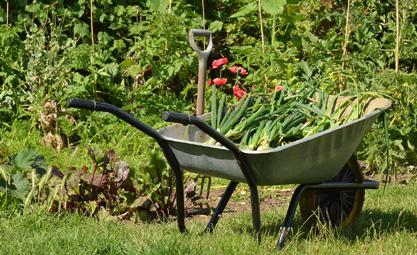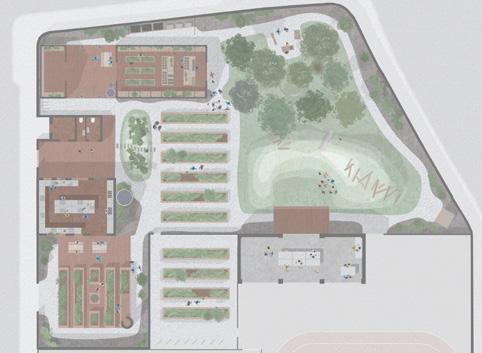
1 minute read
A PROBLEM TO THINK ABOUT
A key difficulty
Lidka experienced when creating the garden was the summer holidays.
Advertisement
“When growing in the school setting one of the biggest difficulties I found was the six week summer break, when there’s no one to look after the garden. Often, after the summer holidays there is little to come back to due to the neglect of a garden in its infancy which needs a lot of care to be sustained over our increasingly hot summers.”
This can be heartbreaking because a whole team of people’s hard work, effort and love which has now gone into creating the garden in the spring, is then lost. But we’ve found some solutions to this problem...
Recruit help from the local community and parents living close by. We’ve found it can be a lovely experience for some families with no outdoor space at home or who cannot go away during the summer holidays. Set up irrigation – most of the garden will survive the summer if watered – so automating / simplifying the system using irrigation will help keep the garden alive.
Plant vegetables which will be harvested before the summer holidays (herbs, salads, potatoes, onions, garlic etc), that way the harvest has already been collected before the end of term, so nothing is left to rot for six weeks.
7.8 ROOM FOR MORE?
At the School of Food, the original kitchen garden proved so succesful we decided to radically increase the size of the garden.
In a second phase of works, which is gradually and organically being implemented as funds and time permit, an area of playground is slowly coming back to life and is teaming with wildlife.
The adjacent masterplan drawing sets out our ambitions for Phase 2.
We’ve packed in interactive educational features and have planned the space so that play and productivity aren’t exclusive to one another.
Additional features include:
An orchard of fruit trees.
Additional productive vegetable beds, space for composting.
A potting shed and propagation house.
Beehives. A chicken coop (the kids' favourite!).
Play spaces.
Natural amphitheatre.
Multipurpose teaching and dining space.
Vegetable beds.
Multi use teaching space. Natural amphitheatre. Natural play area. Perimeter beds. Orchard.

Smoker.
Chickens coops & beehives. Composting area. Propagation house. Outdoor classroom.
Potting shed.









